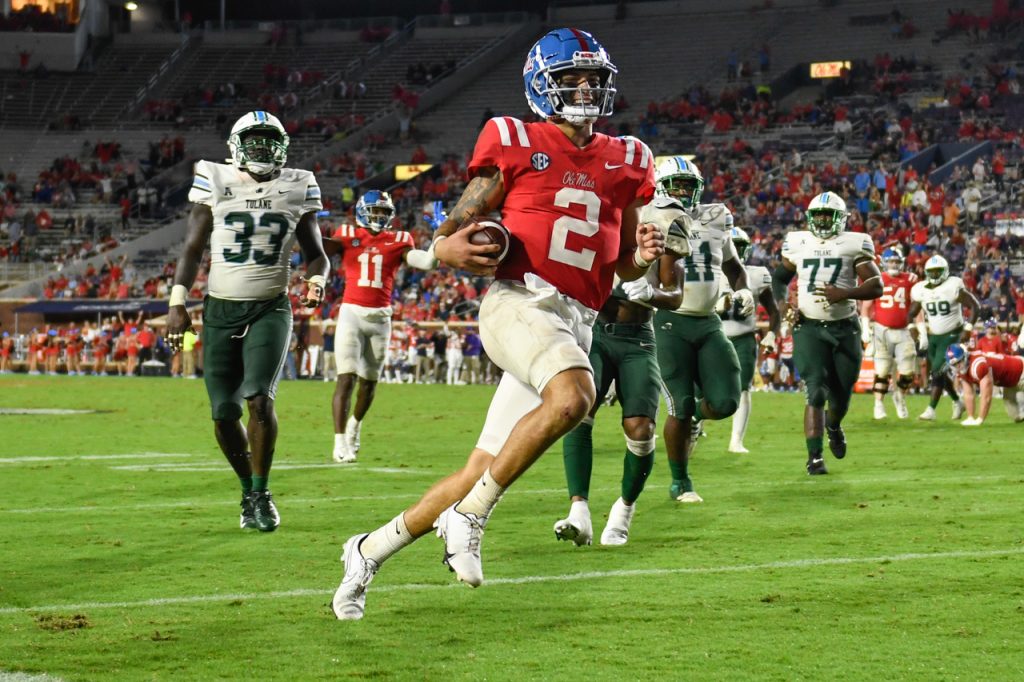Life as a disabled student at Ole Miss is as similar to that of a non-disabled student as it is different. I still went to frat parties pre-COVID-19, I still go to football games and I still do all the schoolwork my classmates do. I am also sometimes late to class because I couldn’t get across campus fast enough or because the handicap spot I wanted to park in was blocked, and sometimes I’m in such excruciating pain that I can’t focus in class. Such is life. I am just as in control of my academics as many students are, however some things I cannot control force me to need a helping hand along the way. These helping hands, however, sometimes feel few and far between, or I feel that I am a burden for needing this support. Even though the Americans with Disabilities Act ensures this assistance, many people have forgotten what this law dictates or have become so used to handicap accessibility that they don’t care to ensure it themselves.
I made my way to the Grove before the Austin Peay game, attempting to go as a regular fan, just with a little assistance along the way. I had thoroughly researched Ole Miss Gameday’s ADA parking policies and accommodations. After parking in the South Oxford Campus’s ADA lot using my handicap parking placard, I approached the shuttle parked 15 feet away from my car to ride to campus. After getting to the shuttle, however, I was told by the driver that the shuttle was “only for handicap people,” and he tried to dismiss me to ride another shuttle (which is illegal according to the Americans with Disabilities Act, as written on the Ole Miss Gameday website). I was then forced to publicly announce my disability to the driver for him to begrudgingly let me and my friends on, which is incredibly uncalled for and embarrassing. (Yes, I know I was seeking accommodations and thereby admitting my disability, but actually saying it out loud in front of friends and strangers is so much worse).
Upon arriving on campus, we discovered that the golf carts to the Grove pick up nowhere near where the shuttle drops off and that it was closer to walk up the hill. Unfortunately, we arrived about 15 minutes before the Walk of Champions, so almost all paths from where we were dropped off were blocked. We were essentially forced to walk up the crowded, mulchy hill: us and the rest of the disabled shuttle, including a woman using a wheelchair. Hopefully, I don’t have to tell you how unacceptable it is to force a group of disabled people and their guests into awful conditions, especially when there are supposed to be golf carts used to avoid that exact situation.
Disabled students, faculty and staff face outside-imposed obstacles whether it’s game day or not. Although it is nothing new, this week especially I have noticed people “just stopping for a second” in the handicap parking spots or the lines next to them, especially to drop off big-little baskets for their sorority. This isn’t to say that Greek individuals are more likely to park in these spots, this is just where I have been affected by it the most.
Disabled students also have the additional burden of acquiring accommodations for their classes, which is done through the Student Disability Services office. As I can personally attest, this process is incredibly long and nerve-wracking. Despite having my initial meeting with the office almost three weeks ago, I only heard back on Wednesday about the status of my accommodations. With midterms quickly approaching, I was and still am terrified that I won’t have the support I need to succeed. Clerical work and advocacy of course take time, and I understand that this is the busiest time of the year for SDS, so perhaps it is not entirely their fault. That does not change my day-to-day reality though. It also does not change the fact that some professors refuse to abide by SDS accommodations and the university does little to nothing about it.
To those who do not feel affected by anything in this article: I am happy for you that we do not face the same obstacles. That being said, it should not be the duty of the disabled to advocate for themselves while others couldn’t care less. Maybe it’s an inconvenience to park across the street to unload your big-little baskets for your sorority. Maybe it’s a hassle trying to think of and cater to the needs of disabled visitors to the Grove and Vaught-Hemingway. Maybe it’s time-consuming to do all of the clerical work needed to get disabled students the accommodations they need. I can assure you, however, that it is 10 times as inconvenient, 10 times as much of a hassle and 10 times as time-consuming to be disabled.
Londyn Lorenz is the opinion editor majoring in Arabic and international studies from Perryville, MO.















